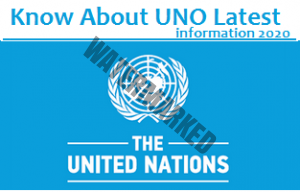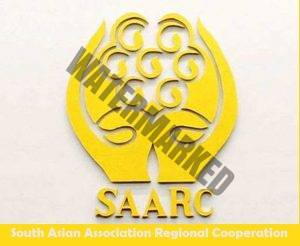[Solved] CSS International Relations (IR) 2023 Paper
Here, you will get a brief discussion of the CSS IR 2023 paper which will assist you that how you can attempt the paper of CSS International Relations (IR) 2023.
Questions of CSS IR 2023 Paper-I
- Q2. Discuss the main principles of Constructivism in International Relations. Give a comparative analysis of constructivism and realism with examples.
- Q3. What are the best policy options to deal with asymmetrical warfare?
- Q4. Role of IMF in developing countries is a contested issue in academic research. What are some positive and negative implications for low-income countries? Q5. Discuss the significance of the IAEA. Critically evaluate its role in nuclear non-proliferation.
- Q6. Do you think the global power structure is passing through a transition? What are the contours of big powers’ strategic realignment?
- Q7. Discuss the concept of state sovereignty. What are the major arguments about non-interference in International Law?
- Q8. Does China’s rise challenge the global political system? What are the implications on the Balance of Power Politics?
Constructivism in International Relations: Main principles and comparison with realism
International Relations as a discipline has undergone significant transformation over the past century, with various theories emerging to explain the behavior of states and other actors in the international arena. Constructivism is one of the most important and widely studied theories in the field of International Relations, offering a unique perspective on the role of norms, values, and beliefs in shaping state behavior. This essay will discuss the main principles of Constructivism in International Relations and provide a comparative analysis of Constructivism and Realism, with examples.
Constructivism, in its most basic form, posits that international relations are shaped not just by material interests and power, but also by the norms, values, and beliefs that exist within the international system. It argues that the structure of the international system, including the norms and values that govern the behavior of states and other actors, is itself a product of the collective beliefs and practices of these actors. According to Constructivists, these norms and values are not simply reflections of material interests but are the result of a process of social interaction and discourse between states and other actors.
The main principles of Constructivism in International Relations can be summarized as follows:
- The centrality of norms and ideas:
Constructivism posits that norms and ideas play a crucial role in shaping state behavior and the structure of the international system. - Social construction of reality:
Constructivists argue that the world is not a given reality but is instead constructed by the collective beliefs and practices of individuals and groups. - The role of discourse:
Constructivists emphasize the role of discourse in shaping the norms, values, and beliefs that exist within the international system. - The interdependence of actors:
Constructivism recognizes the interdependence of actors in the international system and argues that state behavior is influenced not only by material interests but also by the norms and values that exist within the system. - Norms and Institutions: Constructivism emphasizes the importance of norms and institutions in shaping international relations. Norms and institutions provide a shared understanding of what is acceptable behavior in international relations and help to regulate state behavior.
- Intersubjective Understanding: Constructivism argues that the relationships between states are not simply based on material interests and power, but are also shaped by intersubjective understandings between states. These understandings are shaped by ideas, norms, and identities.
In comparison to Realism, Constructivism offers a fundamentally different perspective on the nature of international relations. Realism views the international system as anarchic and driven primarily by material interests and power. It posits that states are motivated by self-interest and will pursue policies that maximize their power and security, regardless of the norms and values that exist within the system. Realists view the norms and values of the international system as secondary to material interests and power, and argue that they play little to no role in shaping state behavior.
For example, Realists would argue that the 2003 U.S. invasion of Iraq was motivated primarily by material interests and the pursuit of power, rather than by the norms and values of the international system. On the other hand, Constructivists would argue that the invasion was influenced by the norms and values of the international system, including the idea of the responsibility to protect and the desire to spread democracy and human rights.
Another example is the U.S. policy towards Cuba, which Realists would argue is motivated by material interests and power, such as the pursuit of regional hegemony and the protection of U.S. businesses. Constructivists, on the other hand, would argue that U.S. policy towards Cuba is shaped by the norms and values of the international system, including the belief in the spread of democracy and human rights, as well as the influence of the Cuban-American lobby.
Similarly, the Realist perspective would argue that the reason for NATO’s intervention in Kosovo in 1999 was primarily a result of the pursuit of national interests, particularly the need to maintain stability in the region. In contrast, the Constructivist perspective would argue that NATO’s intervention was shaped not only by the pursuit of national interests, but also by the norms and values of the international community, such as the protection of human rights and the responsibility to protect.
Moreover, the recent rise of China as a global power. From a Realist perspective, China’s rise is primarily driven by its growing economic power and military capabilities, and its pursuit of national interests. In contrast, a Constructivist perspective would argue that China’s rise is also shaped by the changing norms and identities of the international system, such as the shift towards multipolarity and the decline of Western dominance.
In conclusion, Constructivism offers a different and valuable perspective on international relations. It highlights the role of ideas, norms, and identities in shaping the international system and provides a more nuanced understanding of state behavior in international relations. While Realism remains an important and influential perspective, Constructivism provides a complementary and alternative understanding of international relations, particularly in the post-Cold War world.
Asymmetrical Warfare: Policy options
Asymmetrical warfare refers to conflict in which one side has a significant military advantage over the other, often in the form of unconventional tactics, such as terrorism or guerrilla warfare. The best policy options to deal with asymmetrical warfare are those that are proactive and adaptive, rather than reactive and defensive. Some potential policy options include:
Counterterrorism and anti-radicalization measures: This involves efforts to disrupt the financing, recruitment, and ideology of terrorism, as well as programs to prevent radicalization and to support the integration of vulnerable populations.
Stabilization and reconstruction efforts: This involves efforts to address the root causes of conflict and instability, such as poverty, inequality, and political marginalization. This can help to reduce the appeal of terrorism and increase support for security forces.
Diplomatic and political engagement: This involves efforts to engage with actors in conflict-affected regions, to build trust and address underlying grievances. This can help to reduce support for terrorism and create a more conducive environment for stabilization and reconstruction efforts.
IMF in developing countries: Positive and negative implications
The role of the International Monetary Fund (IMF) in developing countries is a contested issue in academic research. On the one hand, the IMF can provide important financial assistance to developing countries, helping them to stabilize their economies and address balance-of-payments difficulties. On the other hand, the IMF’s conditions for financial assistance can be seen as intrusive and damaging to the economies of developing countries.
Some of the positive implications of the IMF’s role in developing countries include:
Access to financial resources: Developing countries can receive financial assistance from the IMF in times of economic difficulties, which can help them to stabilize their economies and address balance-of-payments problems.
Macroeconomic stability: The IMF’s conditions for financial assistance can help to promote macroeconomic stability in developing countries, by promoting fiscal discipline and sound monetary policies.
However, there are also negative implications of the IMF’s role in developing countries:
Conditionality: The IMF’s conditions for financial assistance can be seen as intrusive and damaging to the economies of developing countries. For example, the IMF may require countries to implement austerity measures or structural reforms that can have a negative impact on economic growth and social welfare.
Lack of ownership: Developing countries may not feel that they have ownership of the policies imposed by the IMF, leading to a lack of political commitment and low levels of public support for these policies.
IAEA and Nuclear Non-Proliferation
The International Atomic Energy Agency (IAEA) is the global intergovernmental organization responsible for promoting the peaceful use of nuclear energy and preventing the spread of nuclear weapons. The IAEA plays a critical role in supporting the global nuclear non-proliferation regime by verifying that states comply with their non-proliferation obligations and by providing technical assistance to states to help them use nuclear energy peacefully.
The IAEA’s role in nuclear non-proliferation can be evaluated in several ways:
Verification: The IAEA’s verification activities help to ensure that states comply with their non-proliferation obligations, including through the use of on-site inspections, environmental sampling, and satellite imagery. This helps to build confidence among states that their neighbors are not pursuing nuclear weapons and helps to deter the spread of these weapons.
Technical Assistance: The IAEA provides technical assistance to states to help them use nuclear energy peacefully, including through training programs, infrastructure development, and assistance with regulatory development. This helps to reduce the risk of nuclear weapons proliferation by supporting the peaceful use of nuclear energy and by promoting nuclear safety and security.
Political and Diplomatic Role: The IAEA also plays a political and diplomatic role, including by supporting dialogue and cooperation between states, and by helping to resolve disputes related to the peaceful use of nuclear energy. This helps to build confidence and reduce tensions between states, which in turn helps to prevent the spread of nuclear weapons.
Global Power Structure: Transition and Strategic Realignment
There is a growing consensus among scholars that the global power structure is undergoing significant change, as new actors emerge and the balance of power shifts. This is due in large part to the rise of China, which has become a major economic and military power and is increasingly challenging the dominance of the United States.
The contours of the big powers’ strategic realignment can be seen in several ways:
Shift in the Balance of Power: The rise of China and other emerging powers is challenging the dominance of the United States and other established powers, leading to a shift in the balance of power in the international system.
Changing Geopolitical Landscape: The rise of new powers is changing the geopolitical landscape, creating new opportunities for cooperation and competition, and requiring a rethinking of traditional alliances and security arrangements.
New Patterns of Cooperation and Competition: The emergence of new powers is leading to new patterns of cooperation and competition, as established powers seek to engage and manage the rise of these actors, and as emerging powers seek to assert their interests and influence in the international system.
State Sovereignty and Non-Interference in International Law
State sovereignty is the concept that states have the right to govern themselves without interference from other states. It is a cornerstone of the modern international system, enshrined in the United Nations Charter and other international agreements.
There are several major arguments about non-interference in international law:
Right to Self-Determination: Some argue that state sovereignty is closely linked to the right of people to self-determination, and that non-interference is necessary to protect this right.
Respect for Territorial Integrity: Others argue that non-interference is necessary to respect the territorial integrity of states and to prevent the destabilization of the international system.
Responsibility to Protect: Some argue that in cases where states are unable or unwilling to protect their populations from serious human rights abuses, such as genocide, crimes against humanity, or ethnic cleansing, other states have a responsibility to intervene to protect those populations. This argument challenges the traditional principle of non-interference and asserts that in certain circumstances, intervention is necessary to prevent mass atrocities.
Realpolitik: Finally, some argue that non-interference is often disregarded in practice, and that states often interfere in the affairs of other states for strategic, economic, or political reasons.
Overall, the concept of state sovereignty and non-interference in international law remains a contentious issue, with different perspectives and interpretations, and with ongoing debates about the balance between the right of states to govern themselves and the responsibility of the international community to address serious human rights abuses.
China’s Rise and Implications for Balance of Power Politics
The rise of China as a major economic and military power has significant implications for the balance of power in the international system. Some argue that China’s rise challenges the existing global political system and threatens to upend the existing balance of power, while others argue that China’s rise can be managed within the existing system through cooperation and engagement.
The implications of China’s rise for balance of power politics can be seen in several ways:
Shift in the Balance of Power: China’s rise as a major power is leading to a shift in the balance of power in the international system, challenging the dominance of the United States and other established powers.
New Geopolitical Landscape: The rise of China is creating a new geopolitical landscape, with new opportunities for cooperation and competition, and requiring a rethinking of traditional alliances and security arrangements.
New Patterns of Cooperation and Competition: The emergence of China as a major power is leading to new patterns of cooperation and competition, as established powers seek to engage and manage the rise of China, and as China seeks to assert its interests and influence in the international system.
Implications for Regional Stability: The rise of China has implications for regional stability, as its growing military capabilities and territorial disputes with its neighbors raise concerns about the risk of conflict in the region.
In conclusion, these questions explore a range of important issues in international relations, from the principles of constructivism and realism, to the role of international organizations like the IMF and the IAEA, to the changing global power structure and the implications of China’s rise. Understanding these issues is essential for those seeking to understand the current state of international relations and the challenges and opportunities facing the international community in the years to come.





